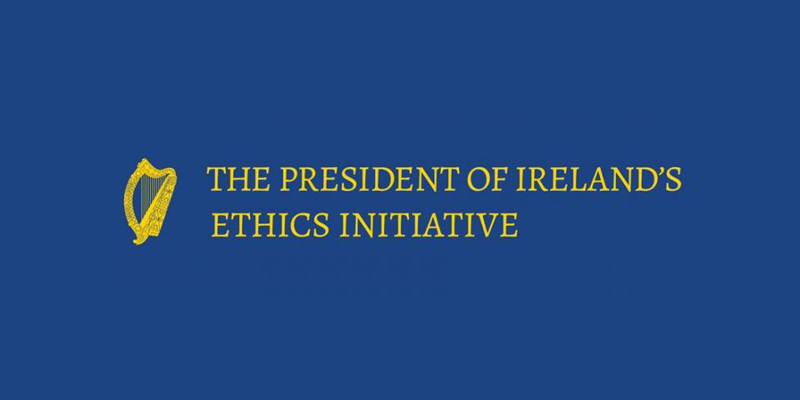
Professor Louise Mallinder and Dr. Margaret O’Callaghan: The Ethics of Commemorative Practices
31 March 2015Professor Louise Mallinder is a reader in human rights and international law at the Transitional Justice Institute at the University of Ulster. Louise’s research interests include amnesty laws, transitional justice, international criminal law, international humanitarian law, international human rights law, restorative justice, database research and socio-legal research. Dr. Margaret O’Callaghan is Senior Lecturer in Politics at the School of Politics, International Studies and Philosophy,Queen’s University Belfast. Her research areas include Irish history and politics, British high politics and the politics of Irish literature.
Ireland, North and South, is in the midst of a Decade of Centenaries. These commemorate a series of pivotal moments that shaped the contemporary political culture and climate in both parts of the island, as well as relationships with the United Kingdom. These momentous events include the passing of the Home Rule Act 1914, the First World War, Easter 1916, the War of Independence and the Irish Civil War. During this period, the island experienced profound social change due to the struggles of, among others, suffragettes and workers. How should we respond to the challenges of engaging with these significant but traumatic moments in our past?
Can There Be An Ethical Dimension To Commeration?
Ethics ought to govern how we treat those with whom we have some form of relationship, be it as relatives, friends, lovers, colleagues or compatriots. The relationship of commemoration to memory, both individual and collective, is complex and widely analysed. Public commemoration is about how groups of people together choose to remember their shared past; forgetting is a part of this. Collective memories can shape groups’ self-identity, but public memory is also a construct that shapes individual memory. Collective memories are rarely static. Instead, what a group chooses to remember or to forget, and how it chooses to remember, evolves over time in response to changing social norms and political climates. This can be true for particular identities within a nation or for national identity as a whole.
What Is The Value Of “Collective Memory” In Commemoration?
The politics of collective memory, as deployed in commemorations, draws upon history, but collective memory is rarely intended to convey solely historically accurate accounts of the past. It is valued for its capacity to bind members of a group together and its ability to articulate a group’s shared origins, values and aspirations; to provide inspiration and pride, for groups or nations to remember victories or acts of heroism.
But remembering more negative acts may also be important. Where communities or institutions have committed abuses against others, they often seek to deny or conceal the truth of their actions. In such cases, collective memory projects that acknowledge victims’ suffering may be important to help victims to heal; to prevent abuses reoccurring; and to hold those responsible accountable. Critically interrogating collective memories can also make visible those who have been excluded from group identities and whose memories have been silenced in public discourse. To achieve this, carefully constructed commemoration is potentially vital.
The Dangers Of Collective Commemeration
Collective commemoration is never an unalloyed good for any society. Where some events are remembered, others are inevitably forgotten. Where divided communities exist within a nation, they are each likely to have their own collective memories of heroism and victimhood, which can be difficult to reconcile with the memories of others. Political leaders may seek to manipulate these collective memories to strengthen power and challenge their opponents. As such, collective memories can sometimes disrupt political and social life, undermine faith in political institutions, and glorify violence or exclusion within a society. These dangers make clear the importance of ethical remembering.
How Can We Commerate Ethically?
How each community or nation remembers its past must inevitably be unique to the experiences and needs of that group. However, research on memory in the ethics and transitional justice fields suggests issues to be considered when developing ethical collective memory projects.
Firstly, if collective commemoration is about group memory, it is likely to prompt reflection on what it means to be member of that group. Ethical remembering should require taking an inclusive, non-discriminatory approach to group membership. With respect to national identity this may require an inclusive approach in terms of gender, religion or political opinion.
Secondly, when planning commemoration events, it is important to reflect upon what they are designed to achieve. Is their goal to honour the dead; to convey information about the past; to encourage unity and reconciliation among the group; to encourage debate and dialogue about how the legacy of past events continues to be felt; or to provoke reflections on the values in which the group believes? The form of memory projects is often dictated by the choice of goals.
Thirdly, to ensure inclusiveness, representatives of key constituencies should be involved in planning and participating in commemoration efforts. In addition, different forms of commemoration may be required to reach different parts of the community.
Fourthly, although debates on collective memory should be representative of diverse views, they should be underpinned by fundamental values within a society. These values should include human rights principles such as truth, justice and equality.
Fifthly, although collective memory is distinctive in its forms and how it draws from history, it is nonetheless important to ensure that commemorations as far as possible are historically accurate.
About This Series
This opinion series explores what ethics currently means to Irish researchers across a variety of disciplines and was led by the RIA Committee for Ethical, Political, Legal and Philosophical Studies and was a contribution to President Higgins’ Ethics Initiative in 2014/15.
The views and opinions expressed by authors are their own and do not reflect the position of the Academy, but are simply an illustration of the various opinions reflective of the diverse Academy Committee membership.
Ethics Initiative
The President of Ireland’s Ethics Initiative is the second in a series of public seminars and reflections that President Higgins is holding during his term of office. This series aims to explore, throughout all aspects of society, the topic of ethics and the challenge and invitation of living ethically.


